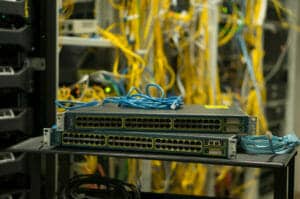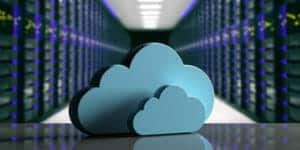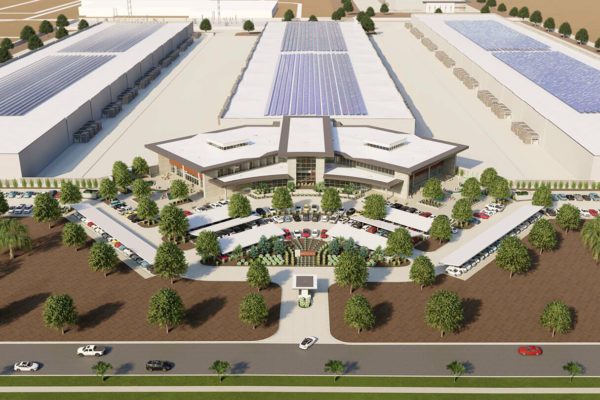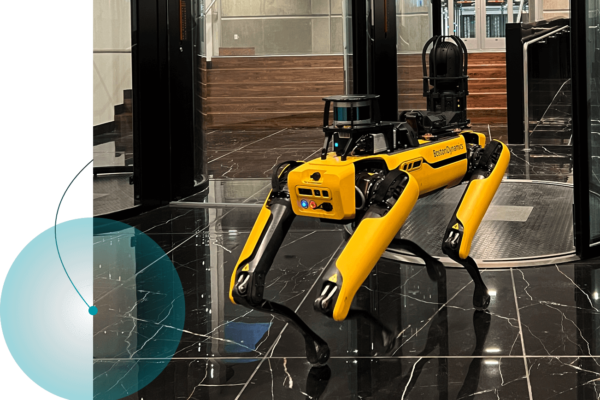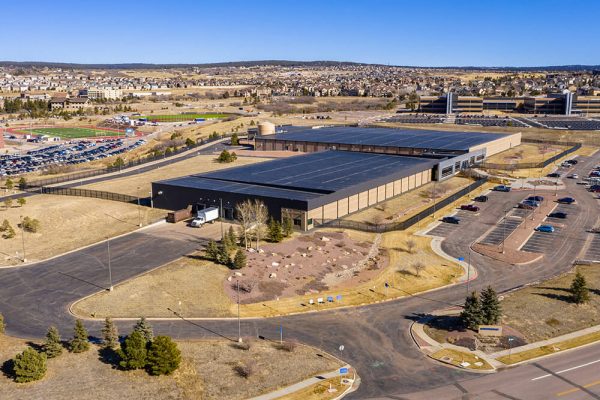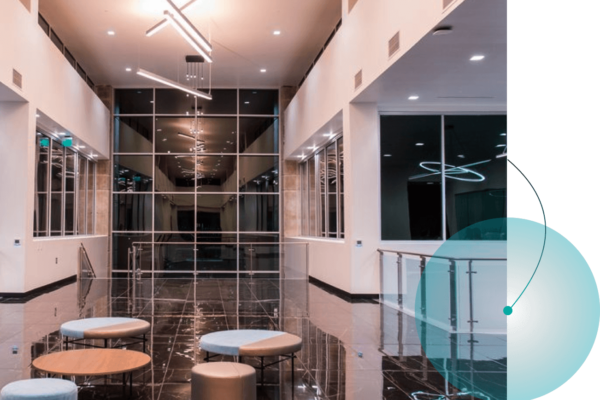Today’s world is data-driven; this reliance on digital information has increased the need to store and access large amounts of data 24/7. For your business, data and its analysis are key drivers for productivity, growth, and innovation and often give you the edge over your competition. Experts anticipate these trends to continue for the foreseeable future.
Whether you are a small business or a large corporation, increased data needs are here to stay. You will need practical solutions to access and use data if you hope to improve customer relations, develop new products and services, and enhance overall growth.
Your Data Storage Options: On-Premise, Cloud, and Colocation Service
Fortunately, there are a few different options for data storage needs. Finding the best choice for your business requires knowing the options available and weighing the pros and cons of each in relation to your specific wants and needs.
On-Premise / In-House Setup
The first option is an on-premise or in-house setup, where your hardware and software are located on-sight on one or more servers. This type of setup works best for small- or medium-sized companies.
The key advantages to an on-premise or in-house setup are:
- complete control over your configuration and security.
- direct access for employees and IT staff.
- creative control of your scope and needs.
The key disadvantages of an in-house setup include:
- increased risks if not staffed 24/7.
- poor resilience.
- poor reliability for remote employees.
- the cost of dedicated space and safety protocols to house it on-sight.
Cloud Computing
Your second option is cloud computing. There are no upfront costs associated with buying hardware, making this a popular choice for start-ups and small and medium companies.
Cloud providers also ensure the following key advantages:
- high resilience.
- easy disaster recovery.
- a strong and reliable internet connection.
However, you don’t know precisely where your third-party cloud computing supplier is physically storing your data, which can cause data security and GDPR compliance issues.
Other key disadvantages of cloud computing include:
- You have no guarantee over the reliability and resilience of your provider’s data center.
- slow connectivity can severely hamper your company’s productivity.
- Lastly, operating costs for cloud computing can be very high.
Colocation
Your third option is colocation. Using a colocation service, or colo, solves many of the problems a growing business may encounter when faced with increased data needs, including security, scaling, space, and power usage. Colocation has its advantages and disadvantages, which we will discuss more in-depth below. First, let’s explore what exactly colocation is and how it works.
Below are a few popular questions about colocation data centers:
What is colocation?
Colocation is the service that a data center provides by hosting your IT hardware outside of your business’s premises and in a data center.
What is a Colocation Data Center?
A colocation data center or colocation facility is a physical building or collection of buildings from which a business can rent space for servers and other network equipment and computing hardware. This space can include anything from racks, cabinets, and cages to rooms, private suites, or an entire building. The term also refers to the fact that servers and other computer equipment from many different companies are ‘co-located’ on the same site. With data colocation, each business provides its own equipment, which is set up, housed, and maintained by the data center facility.
What is Retail Colocation?
Retail colocation, also known as multi-tenant colocation, is leasing or renting a small space within a much larger data center for your business’ IT needs. Often, colocation providers lease space to several tenants or firms who can then interconnect and do business together. Doing so allows businesses to centralize their IT operations, reduce costs, and create a more efficient infrastructure. Retail colocation offers more flexibility to a company.
What is a Wholesale Colocation Center?
Wholesale colocation centers are separate large-scale data facilities that can be independently leased and built out by a business or tenant. Wholesale colocation is a smart solution for large organizations looking to minimize overhead and reduce infrastructure costs while maintaining secure, reliable data services. It is a top-tier server colocation that offers unmatched privacy, flexible compliance capabilities, greater power densities, and greater control.
How does Data Colocation Work?
Imagine you are a small business owner with a solid online presence. However, you do not have the physical space or IT staff to continue supporting your servers in order to grow your business. This is where data colocation comes in. You pay for space at a colocation data center and move your servers and hardware to the nearby colocation. You now have a site with the proper power requirements, cooling capacity, and added security. Your servers and equipment have increased safety, with locks, restricted access, 24/7 security guards, and extra fire suppression services. You have room to grow; if your needs change, you can rent more space at any time. You do not have to pay for added IT staff or worry about crashes; colocation facilities offer experienced teams, power backup, redundancy procedures, and constant connectivity.
What is the Purpose of Colocation?
Colocation provides a high-end, reliable data center for businesses that prefer to focus on their business over data maintenance. Colocation services are also for companies who may not have the resources to maintain their own data center but still want to enjoy the benefits.
Colocation gives businesses the option of storing and running data and network capabilities from a secure, reliable location off-site. It also offers businesses the chance to interconnect with other companies at the same location, increasing business efficiency while reducing costs.
What are the Benefits of Colocation?
The most significant benefit of colocation for a business is the reduced cost for a company, particularly up front. Instead of investing in infrastructure to build and maintain a dedicated building for data, you can lease the space and reap external benefits. Consider your added cost savings of not paying for staff for maintenance, repairs, and security for this space.
Colocation offers several other benefits, including:
- Fewer technical staff
- Exceptional reliability
- Choice of geographical location
- Predictable expenses
- Easy scalability
- Increased interconnectivity
- High-performance environment for critical IT infrastructure
- Unparalleled 24/7 security and safety
- Numerous options of various platforms to choose from
What are the Disadvantages of Colocation?
Colocation still requires that you have capital investment in order to buy hardware, and this upfront cost can be a deterrent for small businesses. Some clients also view the physical distance between the colocation and business as a downside, particularly if the distance is great. You will also need to have technical expertise in order to build a system and place it in the colocation data center unless you pay for a turnkey solution. Turn-key data solutions are custom lease agreements between you and the data center in which much of the technical expertise is provided, allowing you to get your business up and running in days.
What is the Difference Between Hyperscale Centers and Colocation Centers?
A hyperscale data center is a type of wholesale colocation center that has been engineered to meet the technical, operational, and pricing requirements of massive or ‘hyper-scale’ companies like Amazon, Alibaba, Facebook, Google, IBM, Microsoft, and a handful of others. Hyperscale data centers require massive amounts of space and power in order to efficiently support robust, scalable applications for cloud, big data analytics, or storage tasks. For example, hyperscalers require an entire floor of a building or a complete building and 10, 20, or 50 megawatts of power. They also need specific power and cooling redundancy and other user-specific design criteria. Other companies cannot typically connect inside hyperscale data centers. Instead, hyper-scalers place a network extension or network node into a retail colocation facility, which allows the companies that are part of the colocation to connect to the hyperscaler.
Novva: The West’s Leading Data Colocation Center
Novva Data Centers has two of the largest and most innovative colocation data centers in the West. Novva is a privately held company that provides both wholesale and retail colocation infrastructure services to businesses located locally, nationally, and around the globe.
Our Utah wholesale colocation center is the largest in the state. Our data centers, located in Utah, Colorado, Nevada, and California aim to push the data center industry into the future by focusing on cutting-edge technology, sustainable practices, and customized colocation space. We focus on creative, innovative technologies such as:
- Drone surveillance
- Waterless cooling systems
- Solar energy
- Augmented reality training
- Gate authorization
- Ambient air systems
- Adaptive power monitoring and density controls
We offer a variety of services, including turn-key data solutions, blended bandwidth solutions, autonomous client suites, private wholesale buildings, and secure multi-tenant colocation. Contact us today for a quote and see what NOVVA Data Centers can do for your business.

